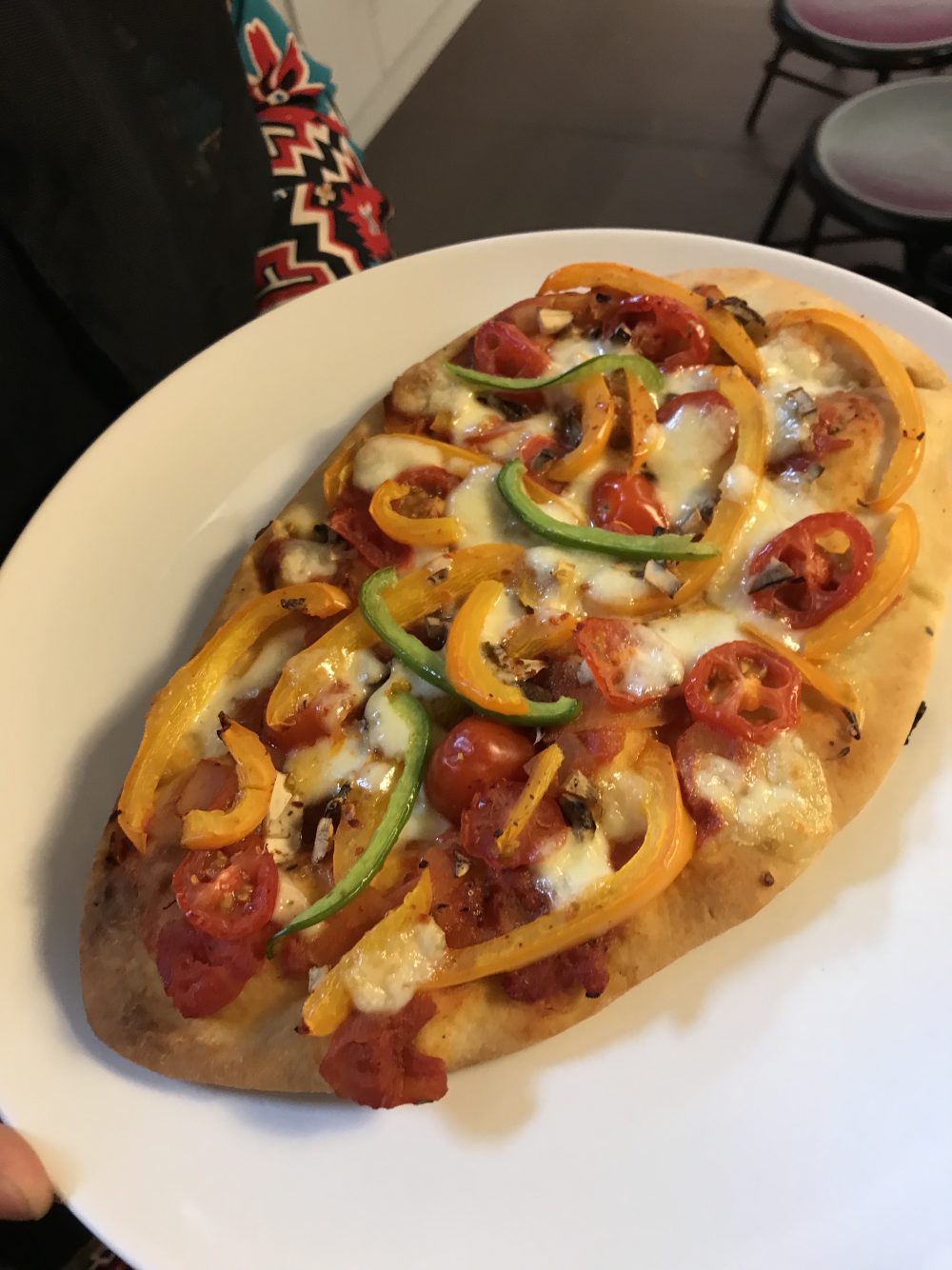You're on the Young People Site
Dedicated to self-harm recovery, insight and support.
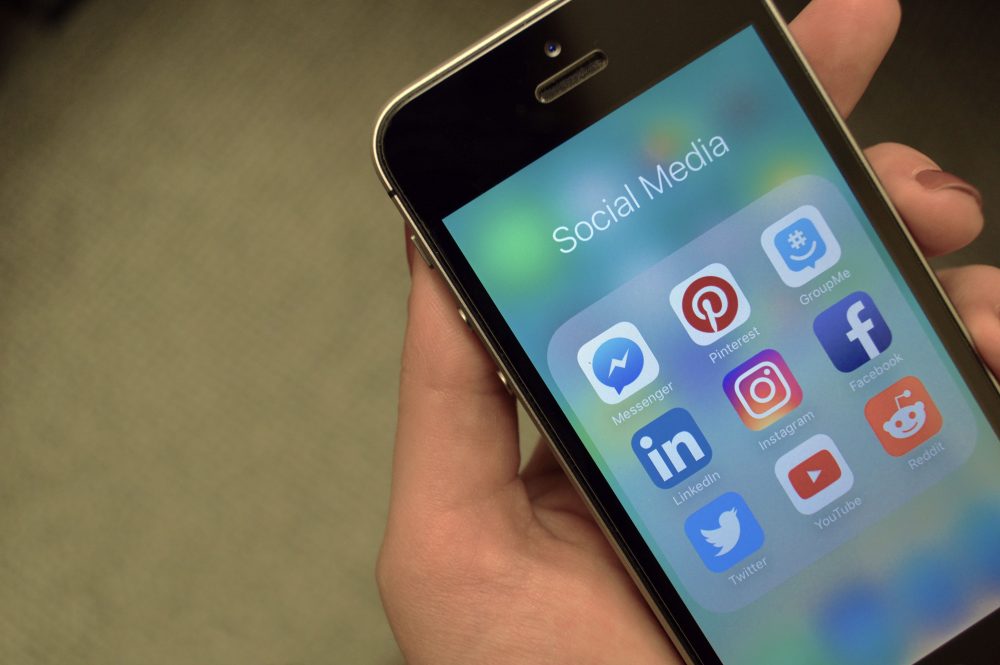
Jess Whittaker, a member of the SelfharmUK team, shares her thoughts about how you can stay smart on Instagram.
Today, as I was driving in to work, something I heard on the radio caught my attention and immediately made me turn up the volume. It was a report claiming that Instagram is one of the worst social media platforms when it comes to the impact on young people’s metal health.
In the UK, a survey of 1,479 people aged 14-24 were asked to rate which social media platform they felt had the most negative effect on them. They then scored each platform individually around issues like anxiety, depression, loneliness, bullying and body image.
Once the report had finished, I turned the radio off and thought for a moment. Like everything, Instagram has positive and negative sides to it, depending on what you use it for.
For example, lets’ say you’re someone who’s suffered from a mental health issue, such as self-harm or bulimia and are now in full recovery (well done you!). You might choose to use Instagram to share your story by posting inspiring quotes and photos that show the positive things in your life. There is no denying that Instagram is a really great way to visually spread positive messages quickly.
But what if you’re someone who spends hours on Instagram late at night, alone in your room, constantly comparing yourself to other people? You’ve stopped posting selfies because you’re so convinced that your photos look awful compared to your friends, that all you really use Instagram for now is to re-inforce your negative thoughts about yourself.
If you can relate to the above, don’t be embarrassed or afraid to speak up because… whoever you are and however you choose to use it, we have some great tips about how you can protect your mental health on Instagram:
- Limit the time you spend on there: like all social medias, Instagram can get kind of addictive. Whilst you might feel like time stands still when you’re on there, it doesn’t. You can literally Insta-away your whole weekend and before you know it, it’s Monday already and your back at School or College again! Just think of all that time wasted and all the fun things you could of been doing instead!? Next time you’re on there, set an alarm to ensure you don’t stay on there for too long, or only look during a short car ride somewhere. As soon as you are where you need to be, close your Instagram app and engage with your surroundings.
- Stop comparing yourself to others: this is a tough one. It’s easy for people to tell you not to compare yourself to others, but the truth is, it’s something that everyone has to deal with throughout their lives every now and again. It becomes a problem, however, when it starts to affect your self-esteem, so how you feel about yourself, and you stop doing the things you used to enjoy because you can’t see the point anymore. If you think Instagram (or any social media for that matter) is starting to make you feel that way, tell a family member or trusted adult. Speaking up isn’t easy, but talking about how you feel is the first step to getting help.
- Think that if it looks too good to be true - it probably is: chances are you already know this, but lots of photos we see on social media have been digitally manipulated. This means that they have been edited on a computer using software like Photoshop to make them look better than they are. Many of the Fashion brands or Celebrities you follow will use this technique, but it’s something we constantly have to remind ourselves of as they can become the norm and start to look real. Next time you see a photo of someone on Instagram, who looks too perfect to be real, have a laugh about the fact that nine times out of ten, they probably aren’t!
- Know where you can go for support if something you’ve seen is bothering you: if you see something on Instagram (or any other social media platform) that upsets you for any reason - report it using the options available, then tell a family member or trusted adult immediately. If you don’t want to talk about it with someone you know, you can call The Samaritans or Childline at any time.
- Don’t go on Instagram alone: at the end of the day, if you’re someone that has always struggled with how social media makes you feel, schedule times to login with your friends after School or College. This way you can instantly discuss anything that you have seen that is upsetting you and find out what your friends think. Again, if you’re still unsure, you can always talk to a family member or trusted adult.
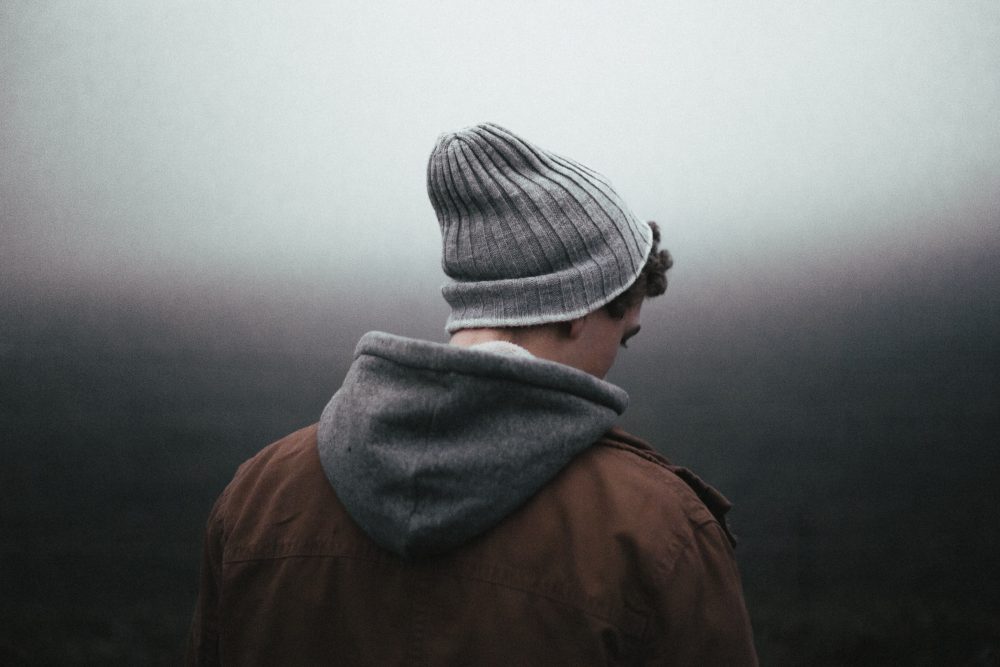
More young people than ever feel lonely. A recent survey by the BBC suggests that 40% of 16-24 year olds would say they feel lonely.
Most of us check our social media pretty often, and it looks like everyone else is having an amazing time doesn’t it? Pictures of them with friends at a party, on holiday with their family, chilling with friends that we don’t know, checking into the cinema with their partner…it looks like they aren’t lonely at all doesn’t it?
The reality is far from it – some people have many acquaintances to make it look like they aren’t lonely. They fill their lives with people who aren’t really friends and people they possibly don’t even trust much because they want to block out that feeling of loneliness.
Some people struggle to make friends and their online friends are the ones they talk to most because they can ‘pretend’ to be something they aren’t… but then end up feeling lonelier.
The common factor in the increase of loneliness in young people, is the rise in social media use because it doesn’t often create deep, meaningful friendships that are based on trust and shared lives. Ironically social media makes us feel lonelier, not less lonely.
So, let's look at some of the ways you could combat feeling lonely:
1️⃣ Seriously reduce your social media time.
2️⃣ Do something that creates connections with people face to face.
3️⃣ Find a hobby group – fitness, craft, music?
4️⃣ Eat with your family at mealtimes.
5️⃣ Say ‘yes’ to trying something new.
6️⃣ Connect with cousins, siblings, grandparents and wider family more.
There are lots of Organisations out there that offer opportunities to join groups or clubs in order to connect with other young people your own age. Do some research in your local area to find out what's going on and what you might like to get involved with.
If cooking's your bag - here at Youthscape, we offer something called Open House, which is a cookery project run by Gemma, our Drop-in Manager, and a professional chef! Over the eight weeks of the course you will learn to cook different dishes, improve your kitchen skills, and host a dinner for a disadvantaged group from the local community...
The aim of the project is to develop confidence in abilities, build relationships, integrate into our daily after-school Drop-in project, engage with a different group in the community, and through this become more connected, improve self-esteem, and begin to gain the skills that will enable young people to recognise and manage their feelings of loneliness and social isolation now and in the future.
If you are a young person aged 11-15 and living in Luton, why not get in touch with Gemma to find out more about our Open House project?
No one is to blame for feeling lonely: it’s not your fault, nor is it anyone else’s; so – this week; begin the journey to feeling less lonely.

The blog post below was written by Ellen.
When I was 11, I began to suffer from intense panic attacks and I turned to self harm to alleviate some of that pain. Seven years later, I’ve got a long list of diagnosis, including anorexia nervosa, depression and anxiety.
Throughout my GCSEs I barely went to school. I taught myself the courses at home and pushed through my exams. I managed to get A*s, but I couldn’t shake the feeling that I wasn’t really living.
The school I was in at the time was very focused on getting the top grades and getting girls into the ‘best' universities. But even at 11 I knew I didn’t want to be a lawyer or a doctor or an accountant or an engineer… but I couldn’t work out what I did want. And I’ve realised that that’s okay.
One of the biggest steps I’ve taken was starting therapy again. I stopped going for a long time because my body and mind were too weak to benefit from it because of my anorexia, but once I was at a stable weight I went back. My therapist has allowed me to open my eyes to the beauty in the world and always encourages me to chase my dreams, even if I’m not sure exactly what I want. She’s helped me to look for coincidences in life; the world starts to connect up and forms a safety net around you.
She was crucial in helping me transfer to an art college for sixth form, and it’s one of the best decisions I’ve ever made. Things are still really hard sometimes but I am learning to get in touch with myself more and I feel like the universe is there to support me.
I have found myself in art; I joined weekend classes in a London photography studio when I was 15 and I realised I could explore a format people want to see and that makes sense to me. I love to create narratives through both words and images; I am interested in psychology and colour theory and I use art to try and understand myself and others.

I created a scanography series in which I expressed my mental health journey through distorted self-portraits and eerie colour palettes. I was inspired by Amy Hughes, a painter I found reading Aesthetica magazine. Encased (2017) is psychologically and physically charged; I was struck by the strong highlights arching over a figure's back with an agonised, scrunched up face, distorted by the reflected light and texture of a plastic prison. I reached out to Amy and interviewed her for my project - she even invited me to the opening of her show! She encouraged me to express my true-self, which helped me develop my interest in the nature of mankind.

According to a survey carried out by the Mental Health Foundation 2018, 74% of adults in the UK alone report feeling overwhelmed or unable to cope. 51% of these adults felt depressed, and 61% felt anxious. 16% had self harmed and 32% said they had experienced suicidal thoughts. It is hard to tell whether we are just noticing and appreciating the effects of mental health more nowadays, or if there is a crisis as dramatic as reported. Either way, to experience mental health issues or to support someone with them is incredibly, painstakingly hard. I know from my own experience how isolated, hopeless and empty these problems can make you feel. Some of my images are my attempt at describing how you can feel like you're living multiple lives; we lie to people and tell them we're okay, we are misunderstood by others, and we don't know how we even really feel.
As the scanner moved, I lifted my head and lowered it at regular intervals to create the more frozen style of image. I’ve also tried to depict the feelings of isolation, disorientation and sadness. I pressed my face against the scanner to create visible pressure on my nose and forehead; the world is so vast and scary, yet we can feel caught-up and claustrophobic living in it. The qualities of the images create a kind of wavering mood-line - a bit like a line graph - as well as confusion and feeling out of control. I moved my face along with the scanner, not worrying about the slight shake of my body as I did so as this is what created the wavering effect.

I didn't want to make them specific to any one mental health issue; they are universal and can be understood by many. For instance, some images may as a representation of schizophrenia. I wanted to create a sense of understanding for those suffering due to mental health issues, be it the one who is ill or the one caring for them, and also to educate those who think the mentally ill are simply 'over dramatic' or 'not worth helping'.
Reasons to try being creative 🎨...
1️⃣ Creatives activities can help to reduce stress levels, aid mental calmness and serve as a relaxing distraction. You can get absorbed in your mental flow when creating.
2️⃣ Art also helps creative thinking; it can better your problem-solving skills. There are no wrong answers in art and we are allowed to imagine our own solutions. Flexible thought can stimulate in the way that learning a new language can.
3️⃣ Art can improve cognitive abilities and memory for people with serious brain disorders, such as dementia, by stimulating cell growth in the brain.
4️⃣ Chronic health conditions can be left behind while you create; a positive experience, and a chance to achieve allows you to express your feelings and help you find your identity.
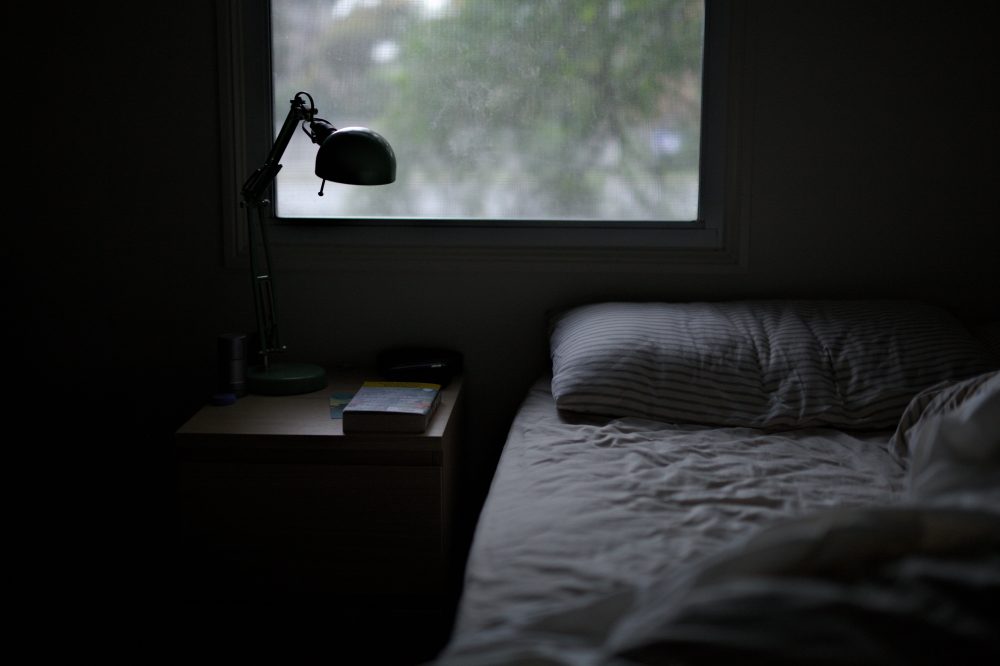
Some young Japanese men are refusing to leave their bedrooms and are choosing to withdraw themselves from society. The reasons aren't always very clear, but in Japan, it's known as hikikomori.
Hikikomori refers to the act of isolation, and to the young men themselves. The word translates as 'pulling inward' or 'being confined'. Often, a hikikomori's family are both ashamed and at a loss as to how to help their child. Some men have not left their own houses in over a decade!
Isolation and loneliness can have a major impact on our mental health. A scheme called 'Rent-a-sister' in Japan is being used to help these hikkomori men to begin to recovery from their reclusiveness. You can watch more about this here.
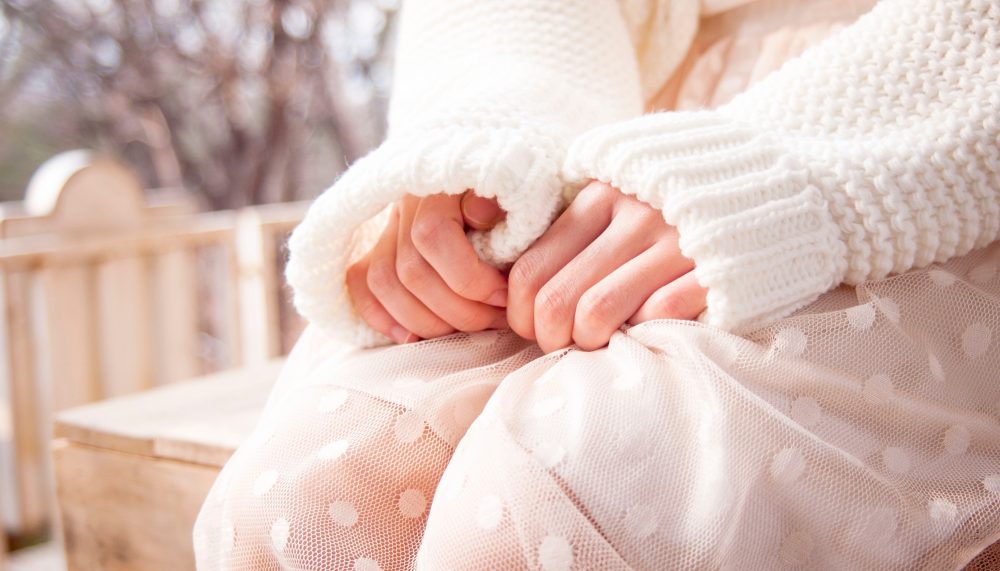
Some people like this lead up to Christmas, some (like me and my family!), really don’t!
The Christmas decorations look pretty and the shops get busier and the Christmas feeling is in the air – but it doesn’t make me get the warm Christmas glow; in fact it begins to make me stressed right from the moment it starts…
The pressure for the perfect film like Christmas family gathering is unachievable – the perfect family game time; the perfect present wrapping, the perfect friends to go out with, the perfect family to share it will – perfection doesn’t exist, in any place at any time.
The media Christmas portrayal adds to our sense of dread – the pressure to smile, laugh, not row, not feel sad – can make us feel very detached from Christmas: so this year, in the lead up here are some tips:
1. Ignore TV films and adverts! We aren’t going to reach a Hollywood Christmas ideal – so let’s not bother. Watch Elf and comedies – they keep a good perspective on it!
2. Try to imagine Christmas day now – what works for you? Do you need to communicate any of that to your family – who don’t you want to see over Christmas? How long do you have to visit relatives for? Begin to start the conversations now so they don’t come as a shock to your family – take control and be prepared to compromise.
3. Make stuff – loads and loads of stuff! Don’t buy it, make it. Keep your hands and mind busy, the personal stuff doesn’t need to cost much nor does it have to be perfect – enjoy the process and the result.
4. Don’t give yourself sky high expectations of yourself over Christmas. If you need to take regular breaks from family, do it. Look after yourself now so that you have the energy for it as it gets closer; plan out the Christmas holidays so that you get a good balance of rest and play.
Love,
The SelfharmUK Team

What’s the World record for the number of people to fit into a Mini? (go on – find out, we know you’ll want to!)
We all try and cram ourselves into small spaces at some point in life, for some reason! Hide and seek? A tent that is way too small? Under our bed? A phone box when it’s raining?
In the same way that we try to cram ourselves into a place too small; we also try and cram our emotions into a space far too small...
This time of year for many is stressful. You might be:
1. Changing schools...
2. Doing your exams...
3. Worried about leaving School...
4. Getting your results...
5. Or concerned about a long summer break...
- What happens to all that stress that is filling us up? What will happen when it overflows?
- Is there anyway we can let out some of that stress that is crammed into us?
- Can we do it in a healthy way?
- What might it look like to pour out some of the stuff in your bucket?
Some things that will happen we can’t do anything about – such as the long summer break – but what we can do to reduce our stress is to begin to plan. For many of us planning reduces the worries about something as it helps us to take control and make choices about how we want to manage an upcoming event that is troubling us.
Think about results day: what do you want to do? Would you rather just get up early and click online to get your results in the privacy of your own house, away from your friends?
Think about the long summer break: how about volunteering somewhere? How about starting a card making service? How about babysitting? How about offering a dog walking service?
Take some time to consider what stresses are filling your bucket: What can you do to manage that stress?

We have heard it from parents, teachers and librarians countless times in our lives and, sadly, often negatively, in a ‘don’t make any noise’ sense!
How about ‘quiet’ in a positive way? ‘quiet’ said in a soothing, gentle way encourages us to relax, breathe and slow down.
Silence and quiet are things that are hard to achieve – maybe we don’t enjoy our own company; maybe we like to keep busy and have background noise constantly; maybe silence isn’t something we are comfortable with?
If silence isn’t something you feel comfortable with it, try it in small amounts to begin with. Thursday 14th September is National Quiet Day, a day all about encouraging you to find a place that feels safe and comfortable where you can relax (or maybe even fall asleep, as that’s what tends to happen when we find places that are quiet!).
Finding quiet in our noisy, crammed lives is hard. It is a discipline we have to learn to take time to listen to what our feelings are saying, what our thoughts are wanting us to ponder and what our body is trying to tell us about how we are doing physically.
You might find sitting with your own thoughts uncomfortable; perhaps all your thoughts and feelings come flooding into your head? That’s ok – write them down, tackle them one by one and give yourself time to think through each feeling that comes into your thoughts. Acknowledge it. Name the feeling. Validate it in the way you would let a friend know you understand them – give yourself permission to feel.
Perhaps finding your quiet place will allow you to draw or sing your thoughts? Hey, no one needs to see or hear you (that’s the joy of a quiet place!), so if you want to sing, shout, cry or laugh – do!
Perhaps reading will allow you some time to read for pleasure? Read slowly enjoying each paragraph. Find a book you loved as a child and go back to it.
Perhaps learning to breathe slower, deeper so your lungs are filled like a balloon might help you relax your muscles, your brain and anxieties?
Quiet offers us the ability to listen to ourselves. Giving yourself the gift of quiet allows you to give you what you give to some many others: your concentration, your love and your thoughts.
This year, why not use National Quiet Day to find some quiet to be with yourself?
If you already have your very own quiet place - we’d love to see it! This could be anything from that bench that you always find peaceful on your daily dog walk, that patch of grass on top of that hill with the best view near your house, your sofa at home or even that place you always like to sit at your favourite cafe. Send your images to info@selfharm.co.uk and we’ll post the best ones on our Instagram, Facebook, Tumblr and Twitter on the day in the hope of inspiring others to find their own quiet places.
You can also follow the hashtag on Twitter, Facebook and Instagram. #NationalQuietDay

Words matter, don’t they?
They have the power to inspire hope or induce despair in seconds.
Today is World Suicide Prevention Day, and at ThinkTwice we believe that the words we use to describe the despair of thoughts of suicide are important.
It’s thought that up to a quarter of young people have suicidal thoughts - and yet so many suffer in silence - afraid of the stigma that can be attached to suicide.
When we use phrases like “commit suicide” or “failed suicide attempt” we make it seem unspeakable.
And yet suicide isn’t a crime to be committed; it’s a preventable tragedy; and the way we prevent it is by talking about it.
When we talk about suicide, we want to be talking about hope, because where there is life there is hope.
Having thoughts of suicide doesn’t make you a bad person, it doesn’t mean you’re crazy, it just means you’re struggling.
And that’s okay.
It’s okay to speak out when you’re struggling - because when you speak out you allow yourself to be helped - and you help to lessen the stigma.
It doesn’t matter whether you talk to a teacher or a parent - what matters is that you talk about it.
If you’re the one hearing your friend speak about suicide, it can feel scary, but you aren’t alone.
Whether you're struggling yourself or it’s your friend - there are people you can talk to.
So this World Suicide Prevention Day we are encouraging everyone to speak of suicide and to speak of hope.
To find out more about our campaign head to ThinkTwice or follow the hashtag on Twitter #SpeakofSuicide #WSPD17
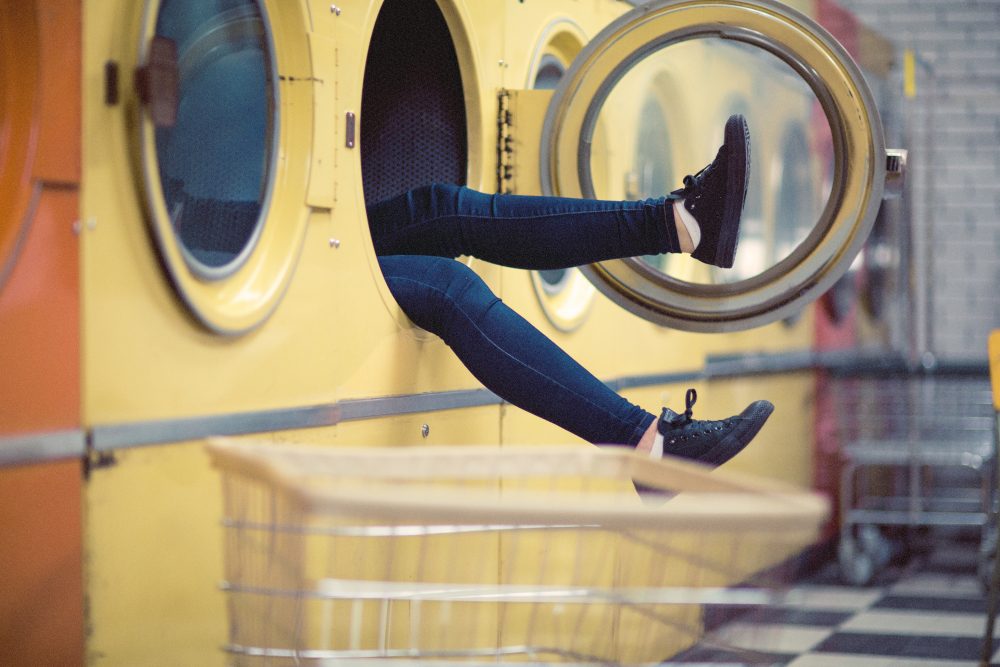
Oliver shares with us what feeling overwhelmed is like for them.
Some days, just even opening my eyes feels hard. I lay there arguing with myself in my head: whether to try and sleep the whole day; or whether to try and talk myself into facing the day…
Then comes the endless interactions with others:
“did you sleep ok?”
“how are you doing today?”
“can you make sure you eat breakfast please?”
“got any plans for today?”
“what about your future – we need to get your college sorted?”
then I go upstairs to get dressed:
what to wear today, nothing feels ‘right’ or comfortable, nothing feels ‘me’ – how do I cover the scars? Then I feel angry – why should I cover the scars? But I don’t feel brave enough not to. I feel so angry with myself for cutting, I hate that I did it but now I feel proud of myself for stopping, but sad that I did it…
I think I will just stay in my pjs today – getting dressed feels too much, too hard, too many decisions to make.
I sit watching TV, just trying to ignore the world and it’s many demands of me: from what I think of anything and everything (I am supposed to have an opinion on politics, my education, best films, worst band, foods I like…the list is endless). I like TV, I can get lost in not having to think or even follow what’s happening too much; my mind can flit in and out without demands or questions.
I am falling asleep when my phone goes: a text. Great – another distraction and prompt to enter someone else’s world.
This time it’s different: someone is entering my world.
My Mum.
“ Hi love, just want to say – I love you. I know you are finding things hard and I may not help in the best way, but I want to help. Let me know how I can.”
I sit and think. Help: I am being offered it but I don’t even know what I need.
I reply: “Mum, I don’t know what I need. I am very unhappy but I don’t know why.”
Mum: “it’s ok to be unhappy and not know why. It’s ok to be happy and not know why. All you need to know is that you are loved, feeling like this won’t last forever, and no matter what, we will be with you, however long it takes”.
I fly downstairs and run to my mum, sitting in the sofa. I climb on her lap and am engulfed in her hug. I am safe (even when I don’t feel safe), I am loved (even when I don’t feel loved), I will get better (even when I can’t remember the last good day I had), my mum might annoy me and ask loads of questions but she actually wants to help.
When it all feels too much: I know this, I am not on my own.
I have found someone who wants to know me even when it feels too much.
It might not be your mum who texts you, it might be that you have to text someone a sad face to let them know you aren’t doing well.
I used to expect people to know that something wasn’t going well without me having to tell them, but now I realise, it’s up to me to ask for help: I can’t expect people to guess.
I am glad my mum text me, I know other people don’t have that. I hope you can find someone today to help you if you are feeling like this – it might be a friend, a counsellor, a youth worker or even the Samaritans – you can call them free or text them 116 123 (I have called them a few times and they were really helpful and kind and didn’t judge me at all).
SelfharmUK run Alumina which is an online support session for young people struggling with self-harm: it’s open to all, it’s confidential, very relaxed and run by professionals so is completely safe for you.

One Direction: the biggest boy band on the planet; the one with all the screaming fans and everyone wondering about their every move. People will often assume these pop stars and many others in the public eye have a perfect, pain-free life. We might think, if I could have one day in their life, all my problems would seem to disappear.
This week Zayn Malik released his book, “Zayn”. It offers an insight into what he describes as the darkest and most difficult times of his life. It’s even refreshing to hear that sentence isn’t it? Don’t get me wrong – I would not wish dark and difficult times on anyone, but I think that sentence causes us to take a step back and realise that those times come to and are felt by everyone.
Zayn openly expresses in his book that during the last few months of One Direction he had an eating disorder. He says this:
“I think it was about control. I didn’t feel like I had control over anything else in my life, but food was something I could control, so I did, I had lost so much weight I had become ill. The workload and the pace of life on the road put together with the pressures and strains of everything going on within the band had badly affected my eating habits.” (Taken from Zayn Malik’s autobiography Zayn 2016)
There can be many reasons why people can develop eating disorders, and most of us instantly assume it is about being thin. While this can sometimes be the case, as Zayn so eloquently points out one big reason can be about gaining some control.
The online resource Eating Disorder Hope talks about anxiety and control linked to eating disorders:
"Often, it is the case that anxiety precedes an eating disorder. In struggling with severe anxiety, for instance, being able to control the aspect of one’s life, such as food, weight, and exercise, indirectly gives the suffer a false sense of control, which can temporarily relieve symptoms experienced due to anxiety." (Taken from Eating Disorder Hope website 2016)
Zayn has also spoken in depth before about his own anxiety and how he has at times been unable to go on stage due to feelings of overwhelming panic. This is actually one reason he gave when he left the band back in March 2015. Popular vlogger Zoella has also created a fantastic video about her own panic attacks and anxiety, you can see it here
I think it is important for us to try to realise a couple of things from stories like Zayn’s. Firstly, we must remember that all people – whoever they are and whatever they do for a living – feel, live and experience pain. Secondly we should be challenged to think about our own recovery, so ask yourself:
What are the things that are causing you to try to gain some control?
How does controlling food help to make things better?
What things may need to change in order for the need to control to fade?
From there you can begin, as Zayn did, to find a place of freedom.
SelfharmUK eating disorder resources can be found here
A Parents guide to eating disorders can be found here
B-eat are another eating disorder charity that are there to help you

Whether you’re currently in the midst of struggling with self harm, giving up, or have stopped for years, scars can be a difficult part of self harm to deal with. I’d say I’ve pretty much accepted my scars now, yet sat on a coach writing this, bare arms, I still find myself automatically trying to cover up as someone walks past my seat.
When you were younger, did you love to show your grazes and cuts to others when you were injured from maybe climbing a tree, or doing something adventurous? Feeling proud and wanting to tell everyone how you got that injury, and even once it had healed, still showing off your scars, no matter how big or small it was?
As we grow up, this can still be the case, but scars from self harm can leave us feeling ashamed, disgusted or angry at ourselves, and are certainly something we wouldn’t point out to everyone. We even go that bit further and make the effort to actively hide them - to avoid exposing our secret, avoid the stares or questions, avoid being made to feel uncomfortable.
I really like the theme this month – Survival Scars. It makes you look at scars in a different way. They make me think of coming out of a battle, like warriors with scars, reminding us that we fought and survived. I’ve found that the way we view scars makes a huge difference when coping with them.
Being able to cope with your scars doesn’t necessarily mean showing them off. Scars are there whether we hide them or not. I think coping with scars, for me, is about acceptance. The more we accept our scars, the easier we will find it to cope with them.
A few important things to remember:
> Scars may not be as obvious as we think they are to other people. Because we know they’re there it means we’re naturally going to be more aware of them.
> One day your scars could give you the opportunity to help someone else on their journey.
> They show that through deep emotional pain, you strove to survive – so if people stare or make comments about them, don’t be ashamed, they don’t know your story and how far you’ve come.
> If you have worries about later on in life, about how you’ll deal with your scars in marriage/if you have children etc. Don’t worry about that right now, you don’t know how far you will have come by then, and it may not be a worry at all when you reach that point
Accepting your scars is a process, it may be difficult at first, but just as wounds take time to heal, so does how you view your scars. Each person is different so what could take months for one person could take years for someone else, and that’s totally okay.
Your scars are a sign of survival and healing, and you shouldn’t be ashamed of that. You made it out of battle, and that is awesome.
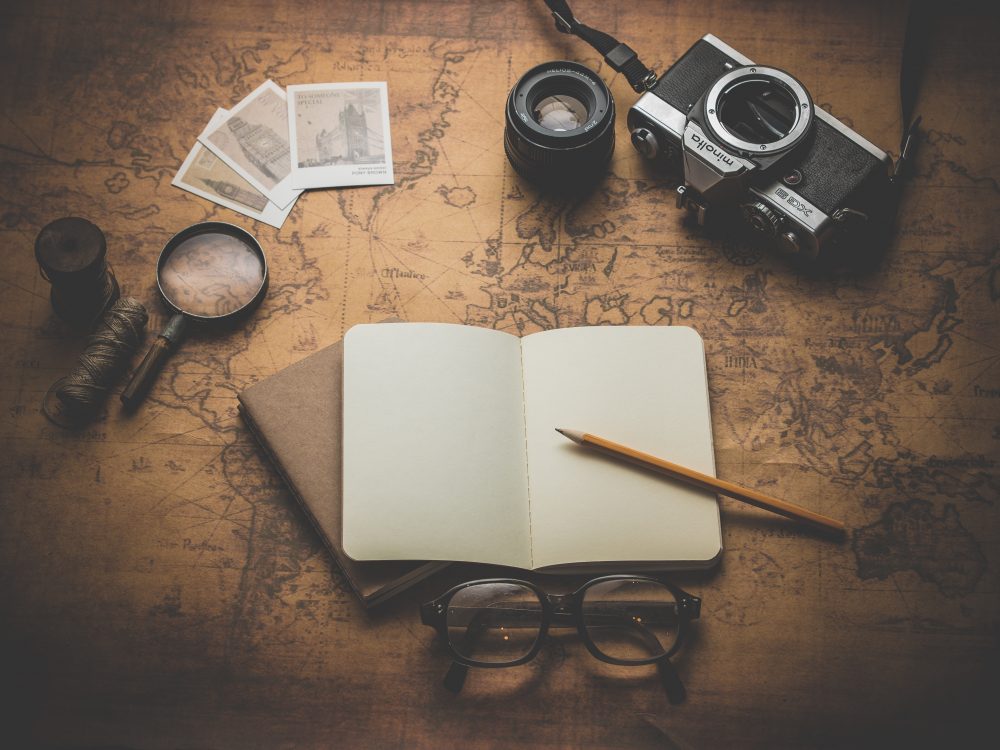
Rejection is a hideous experience and we can build up a catalogue of wounds - emotional or physical - as different parts of us are under lifes spotlight. It might not get any easier to handle but there are things we can learn. Self confessed Geography Geek and cat loving Yorkshire girl, Heather has shared her story of life's knocks and what they showed her so far...
From not being allowed to do your singing exam to missing an invite to the latest party; rejection is unfortunately a part of life and it simply makes you feel like you’re not good enough. But somehow as we grow older, this feeling can seem to have more of an impact on our lives.
At 19, I finished art college and applied to 5 universities, 2 choices were at my boyfriend’s uni so I was feeling pretty excited; I was just doing what I thought every 19 year old had to do. I had 5 interviews, 5 trips to new cities and 5 rounds of preparation and nerves. However despite my best efforts, I was soon left with 5 lines of ‘unsuccessful’ staring back at me and the feeling of not being good enough engulfed me for months. Not only this, but my boyfriend too rejected me for his ‘super fun’ university life; I was utterly heartbroken. Heartbroken and rejected by the life I thought I was meant to be leading. I was the lowest I had every felt, my confidence was knocked massively and all I could do was sit and compare myself to everyone having ‘the time of their lives’. Or so it seemed.
A year later after a lot of hard work, I had 5 unconditional offers to study Geography and I ended up at my perfect university, I could not have been happier – it was finally my turn to have an amazing university experience, I mean it looked perfect on my friends Facebook pages! However, 3 years, 1 bout of anxiety and 1 emotionally abusive relationship later I graduated and was back in the same place I found myself at 19 – this time I’d gone through so much at university that the pressure was on to get that well-paid graduate job. After all that’s what every 22 year old was doing right?!
After what seemed like ages, I was head hunted by a recruitment agency for a ‘fantastic opportunity’ at a start-up company with brilliant pay and a ‘friendly’ close knit team. I couldn’t say no, the emails that were exchanged were filled with positive words and I truly felt they were excited to have me on board. It was all going so well, or so I thought, then I was sacked. Exactly a month after starting with no warning or notice, I was gone and all they could really say was they were ‘saving me’ from office life. I look back now at all the small things I did wondering if that was wrong, or I wasn’t smart enough to understand that, or if they were silently mocking me and I was totally oblivious. I cried for days; not because of losing the job (I knew it wasn’t for me anyway) but because I was humiliated, embarrassed that I wasn’t liked. That massive knock to my confidence, the hot feeling in your tummy when you get rejected was the biggest I had ever had, this was serious, this was my income and my chance at a career completely torn away.
I am a huge believer of everything happens for a reason. I think, 99% of the time, we get rejected because it simply is not the best thing for us. The night before I got sacked I received a job offer for my dream Geography graduate job, and now I look back and realise it could not have worked out any better. I do sometimes worry that anyone could turn around and reject me; but I just remind myself every day that it has nothing to do with who I am as a person. Going through what I have has given me chance to take a step back from hectic emotional situations and work out what I really wanted; it may have been horrible at the time but I am finally thankful.
Rejection hurts more when you think you’re meant to be following the same path as everyone else and your life doesnt match up. But everyone is unique and everyone leads a completely different life, that’s what’s so exciting. Respect your uniqueness and it will help you battle those negative emotions brought up by rejection, self-approval is what truly matters.
For years I was known by certain staff members in school for my use of self-harm. It was the way I felt able to survive in a world that seemed to be falling apart around me. I knew it wasn’t the best way of coping, but I needed it at the time; I needed it to show me an outward sign of my inward suffering. Over time I managed to build up some trusting relationships within school staff who knew I self-harmed but remained respectful, avoiding forcing me to show them or talking about it. This understanding and respect was important for me in order to allow me to begin the process of recovery from self-harm.
After one particularly bad night, I attended school afraid that I may need some extra support with cleaning and caring for my self-harm. I was a part of a support community on a social media site so I asked around for advice when bringing it to the attention of school staff. I was met by negativity due to past experiences of others. Some were rushed to A&E by panicked teachers, others had been told to sort it out for themselves as they were self-inflicted, and others were taken from their classes and away from their classmates to a seclusion room. Fearful that I may be met with a similar negative response I approached the school chaplain who gave me time and space to open up about what had happened that particular night. She was calm and empathetic and this made me feel comfortable and confident in my sharing. The chaplain spoke to me about what I needed to do to keep the wounds clean rather than forcing me to show her so that she could deal with the wound; this made me feel empowered and responsible to take care and take control.
Because of the positive response I received in seeking help, I felt more able to open up and receive the support I desperately needed at times. I felt confident in knowing I wasn’t going to be secluded for a behaviour I felt I needed temporarily to help me, and I knew I would be listened to and met with support when I sought it.
It’s completely okay to feel afraid about opening up to someone about your self-harm. Talking for the first time or the 100th time can be daunting as self-harm is very personal and there are a lot of emotions attached to it. Although there are people who do respond in the wrong ways to people who do self-harm, there are others who really do want to help you and want the best for you. So, I encourage you just to try building a relationship with someone you feel able to. Over time open up and, when you’re ready, seek the support you need because you really do not have to face anything in this world alone.
Miriam Jarvis is a student Mental Health Nurse studying in Plymouth, she is passionate about all things Mental Health, church and can usually be found with a cup of tea in hand! You can find some of her work raising awareness of mental illness dotted around the internet:
http://blurtitout.org/2013/12/24/depression-miriams-useless-guide/


